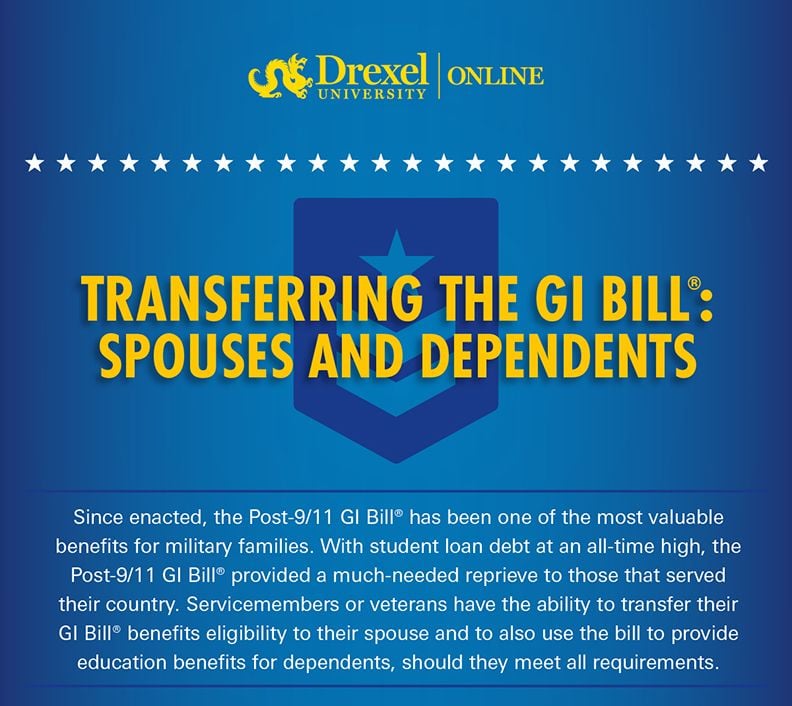
Since it was enacted, the Post-9/11 GI Bill® has been one of the most valuable benefits and resources for military families. With student loan debt at an all-time high, the bill provides a much-needed reprieve to those who served our country.
With unpredictable changes likely on the horizon, many veterans have started looking to transfer their GI benefits to their spouse or child while the option is still available. To understand why the Post-9/11 GI Bill® exists in its current form and predict future changes to its transferability, you should know why it was enacted in the first place.
Purpose of the GI Bill® Transfer Program
The Post-9/11 GI Bill® Transfer Program was designed to keep mid-career military members in uniform at a time when manpower was required, while still ensuring they could utilize their full GI benefits. For this reason, the bill featured mandatory service time and required that the member still be in the military in order to transfer benefits to their spouse or dependents. Between 2013 and 2015 alone, there was an uptick in transferring Post-9/11 GI Bill® eligibility to dependents. In 2015, there were 137,509 beneficiaries, up from 135,159 in 2013.
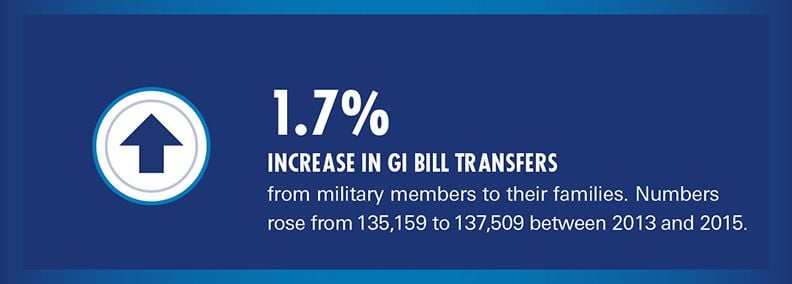
What Benefits does the Post-9/11 GI Bill® Include?
The Post-9/11 GI Bill® provides eligible military members and veterans with several useful benefits, providing help for tuition and housing.
Tuition and Fees
The bill covers tuition and fee payments up to $21,084.89 for tuition during a complete academic year. In some circumstances, non-resident students of a public Institution of Higher Learning may be eligible for additional payments.
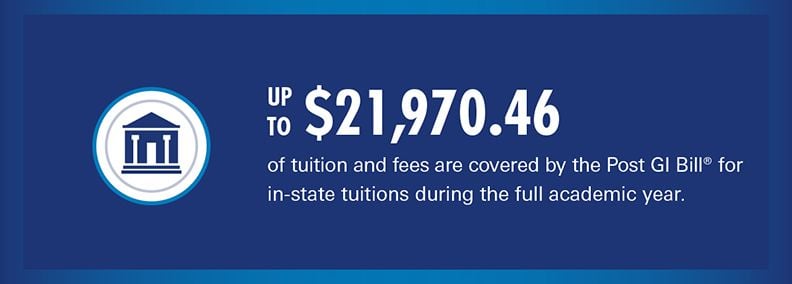
Monthly Housing Allowance
The bill’s Monthly Housing Allowance is similar to the Basic Allowance for Housing for an E-5 with dependents. One major difference is that the monthly rate you are eligible for is allocated based on the school’s ZIP code instead of your personal address, and paid at a percentage based on actual training time. To put it simply, full-time students will be eligible for a larger monthly housing allowance than part-time students.
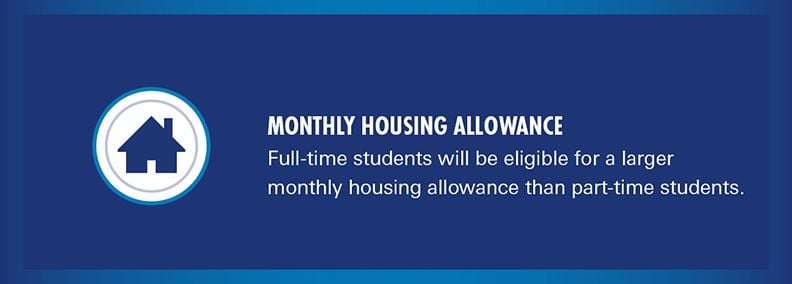
GI Bill® Transferability Requirements
Unfortunately, not all military members are eligible for benefits transfer. The following are specific requirements that Post-9/11 GI Bill® eligible service members must meet in order to transfer their benefits:
- Be currently on active duty or in the Selected Reserve.
- Have served at least 6 years on the date that GI Bill transfer request is filed, along with agreeing to serve a minimum of 4 more years.
- Have served a minimum of 10 years, but are unable to commit to 4 more years of service because of law. In order to qualify, the military member must agree to serve as long as they are legally able.
- The recipient of the benefit transfer must be enrolled in DEERS.
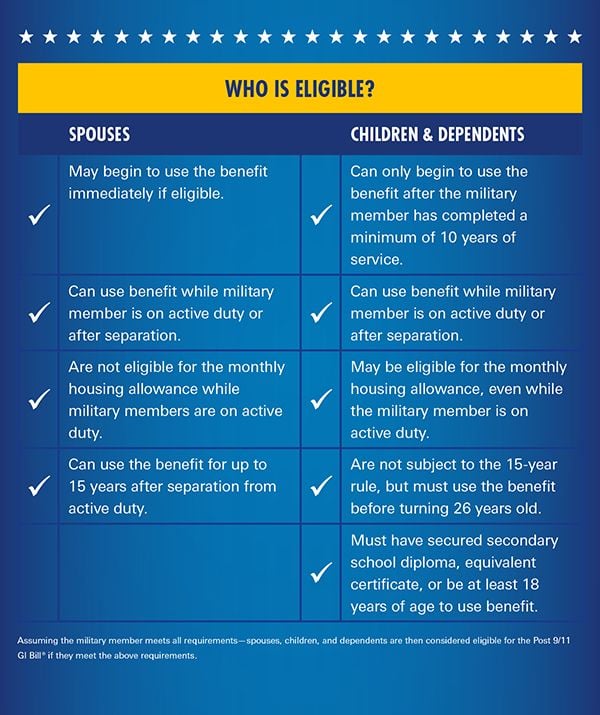
Who is eligible to receive transfer benefits?
The transfer of Post-9/11 GI Bill® benefits is limited to dependent spouses and children, each with their own set of regulations associated with the transfer. The conditions that apply to spouses and children include the following:
How Does the GI Bill® Work for Spouses?
- May begin to use the benefit immediately, if eligible
- Can use the benefit while the military member is on active duty or after separation
- Are not eligible for the monthly housing allowance while the military member is on active duty
- Can use the benefit for up to 15 years after separation from active duty
How Does the GI Bill® Work for Dependents & Children?
- Can only begin to use the benefit after the military member has completed a minimum of 10 years of service
- Can use the benefit while the member is on active duty or after separation
- Must have secured secondary school diploma, equivalent certificate, or be at least 18 years of age
- May be eligible for the monthly housing allowance, even while the military member is on active duty
- Are not subject to the 15-year rule, but must use the benefit before turning 26 years old
Start exploring your options now to transfer your GI Bill® to your spouse and dependents. If you are still serving, you can request a Transfer of Entitlement at the Transfer of Education Benefits website.
Download this page as an Infographic [PDF]
GI Bill® is a registered trademark of the U.S. Department of Veterans Affairs (VA). More information about education benefits offered by VA is available at the official U.S. government website.









